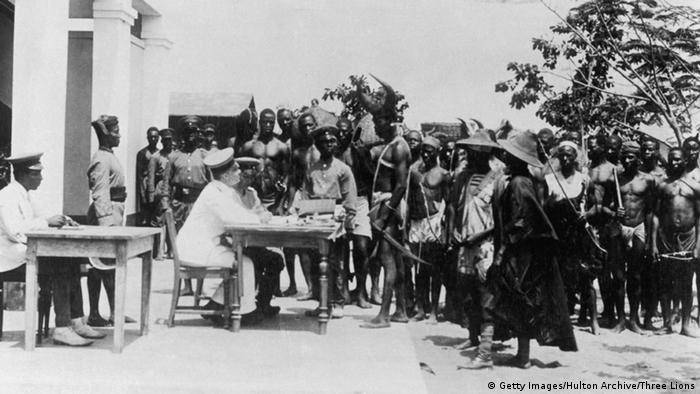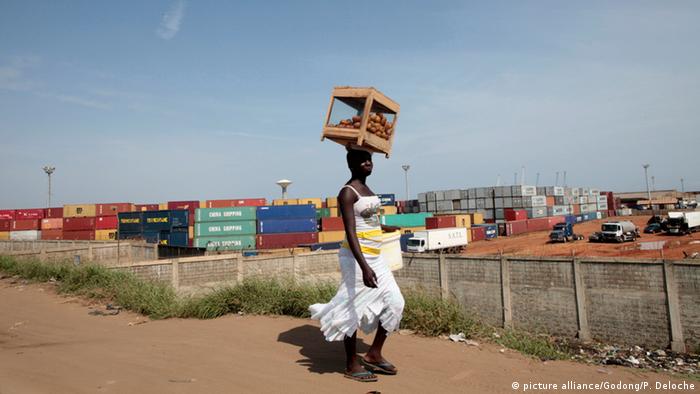Togo
Germany and Togo: From the colonial power to the popular Investor
Only recently has normalized the relationship between Germany and Togo, after a long ice age. Now, politicians and businessmen are hoping for a “spring of cooperation”. The signs are good.

Archive photo: Togo foreign Minister Robert Dussey, and Frank-Walter Steinmeier
If in the next week, a German Delegation of members of Parliament and industry visited representatives of Togo, then the story travels. Finally, the West African country between 1884 and 1914, a so-called protected area of the German Empire. Still today witness to magnificent buildings such as the former Governor’s Palace on the seafront of the capital, Lomé, of the colonial past of the German-Togolese relations.
At that time, Togo was considered a “model colony” – also because of high taxes and forced to work for the native population of the colony, from the German point of view made it particularly lucrative. More than 100 years later, in Lomé is hardly Bad about the former German colonial masters: hard-working, hard-working and disciplined, the Germans, the motto of the young Generation in Togo.

From 1884 to 1914, the German prevailed in Togo
Edem Attiogbé, Director of the Goethe Institute in Lomé, think you know the reasons: “The German colonial era is long gone. Most of the talk about this time, little is known about them – apart from the positive bias.” Not least, the Germans were only thirty years in the country – the memories of it were let during the subsequent French rule increasingly.
A special friendship between men
In 1960, Togo has been dismissed in the independence – a new Chapter of German-Togolese relations began. Especially in the late 70s and 80s, the Federal Republic of Germany and Togo were in a close relationship. All the men made friendship between the autocratic President Gnassingbé Eyadéma and the Minister-President of Bavaria Franz-Josef Strauss, Togo became one of the most important cornerstones of German Africa policy. A “model for Africa” called Strauss’s speaker, the former colony once.

Franz Josef Strauss cultivated a close and controversial friendship to Togo
However, noise hunts, and the end of state banquets and widespread Antelope in the regular Togo-Visit of the CSU-man were also in the 80s, not without controversy. “We Blacks need to stick together,” said Strauss in the joke – even then, this kind of rhetoric seemed to have fallen out of time.
A “spring”of the co?
At the beginning of the 90s, the German-Togolese relations cooled noticeably. Massive human rights and democracy deficits under the dictatorial acting President Eyadema brought on the German side also many years of advocacy, from Togo to avert.
Only since the – albeit tentative -political and economic progress under the since 2005, President Faure Gnassingbé has been a growing interest in the West African country. So Germany took in 2012 after almost twenty years of interruption, the development of cooperation with Togo. At the beginning of this year I visited development Minister Gerd Müller of the country. Only the
German economy remains hesitant.

Togo’s economy is continuously growing
Probably that is why the Motto of the upcoming delegation trip “Printemps de Coopération” – spring of the cooperation. The representatives from politics and industry want to bring the German-Togolese relations new life. Togo welcomes you with open arms. German companies are welcome to invest in Togo, said Togo’s foreign Minister Robert Dussey, last week, during a visit to Germany in the DW. “You will not regret it.”
Growing interest in German language courses
In fact, the conditions for a stronger Engagement of German companies in Togo are good. For several years, Togo’s economy is growing steadily, for 2016, the world Bank predicts 4.9 percent growth. Important infrastructure projects such as the Expansion of the deep-sea port and the airport in Lomé is progressing well, and some German companies were able to position themselves already successful in the Togolese market.
In addition, young Togolese in Germany and the German language are to be interested as never before, says Goethe-Institut-head of Attiogbé: “For several years we have at the Goethe Institute, a moderate increase in the course participants. Meanwhile, there are about 1,600 enrollments per year.” Many of the students would like to study in Germany; others would need the knowledge of the language, to the framework of family reunification to Germany.
Also Attiogbé holds the upcoming delegation trip for a big Chance. “I believe that this event is a sign that you can look optimistic in the future.”
Employees: Kossivi Tiassou